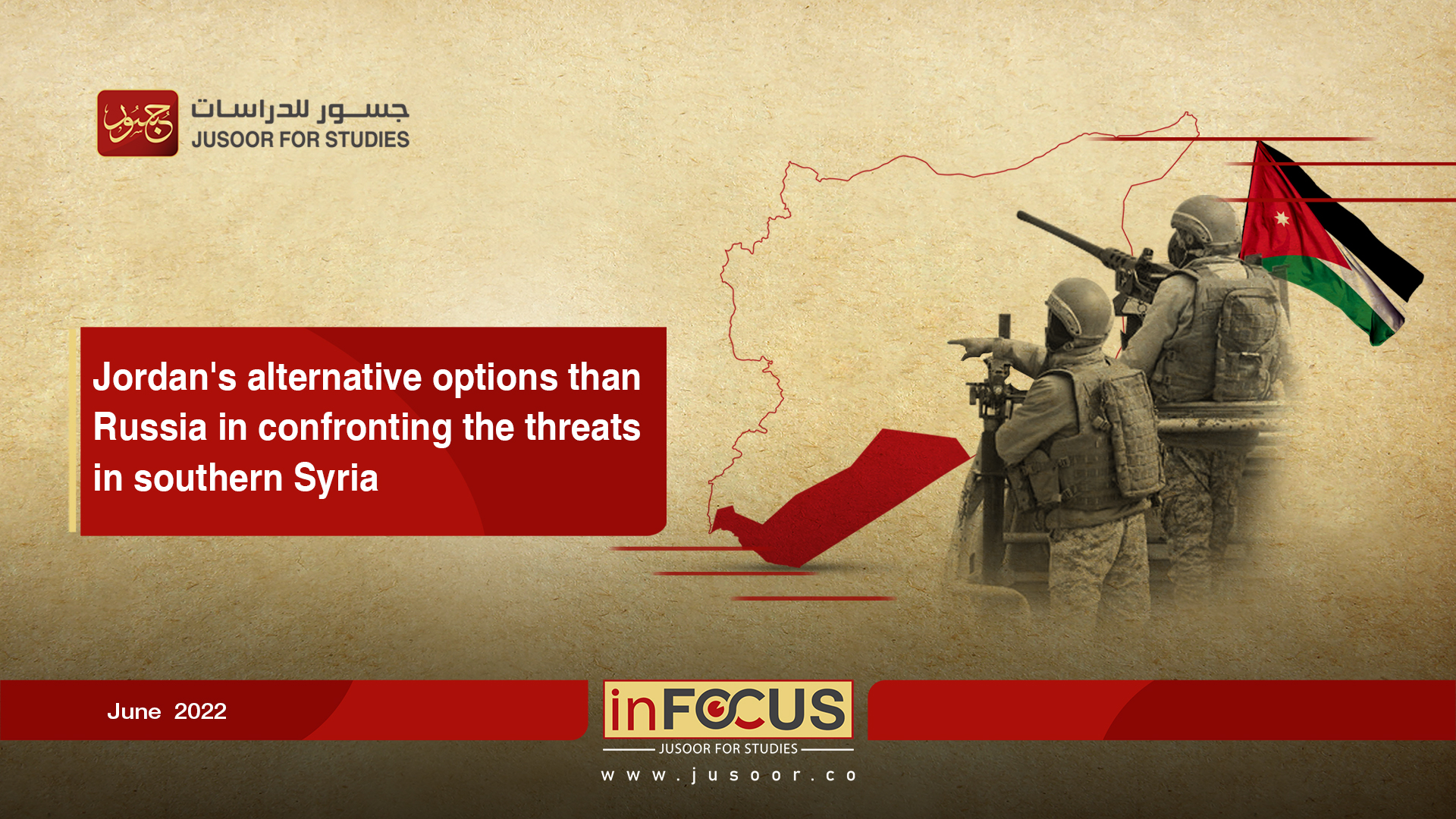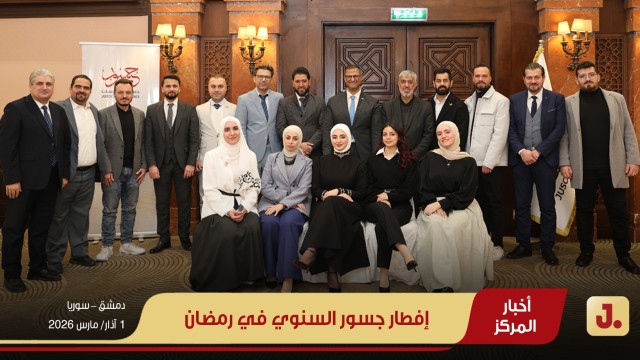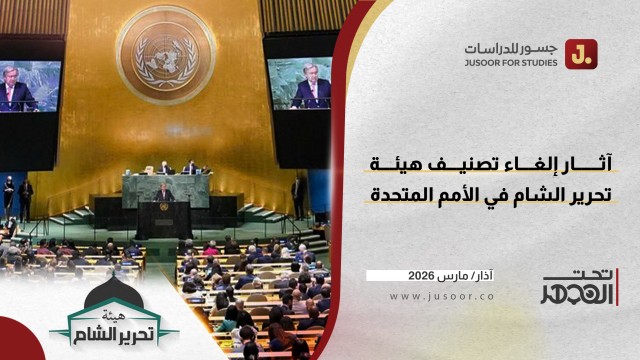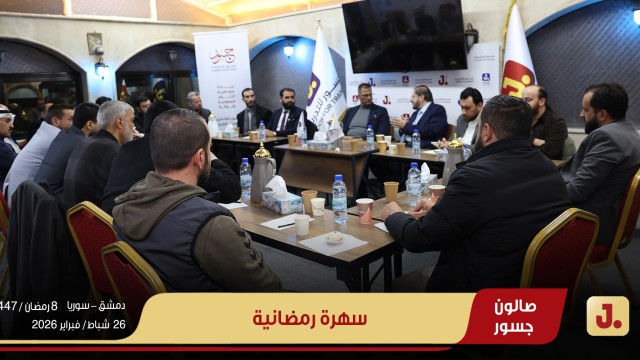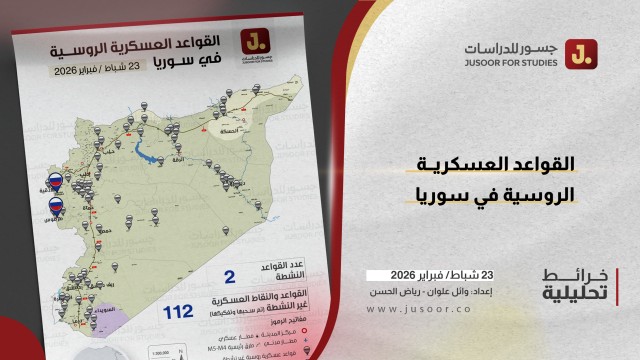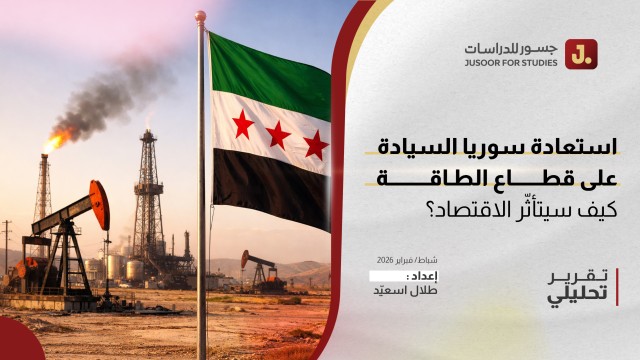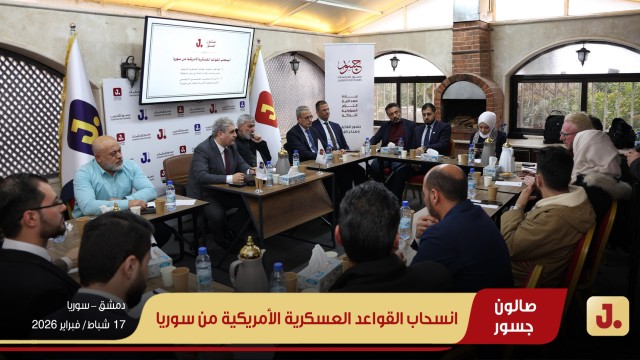Jordan's alternative options than Russia in confronting the threats in southern Syria
حجم الخط
Jordan's alternative options than Russia in confronting the threats in southern Syria
Jordan faces growing security threats as a result of the increased activity of Iranian militias in southern Syria near the border strip with the Kingdom, since February 2022.
On several occasions during May and June 2022, Jordanian officials expressed deep concern about the deteriorating Russia's role in southern Syria as a result of the preoccupation with the Ukrainian conflict. This comes simultaneously with bringing new Iranian militias affiliated with the Abu al-Fadl al-Abbas Brigade and Lebanese Hezbollah to the governorates of Daraa and As-Suwayda, southern Syria. This also comes in line with the escalated armed infiltration and drug smuggling attempts from the Syrian territories into Jordan.
It is noted that the Iranian militias' activity is increasingly growing despite the symbolic presence of the Russian military police in the city of Daraa and the town of Izra. It is worth mentioning that Moscow has deployed some forces in its military points after successive settlement agreements were reached in 2018, 2019 and 2021, as a guarantee to keep Iranian militias apart from the Jordanian and Israeli borders.
In light of Russia's inability or unwillingness to address the threats targeting the Jordanian borders, Amman may turn to exploring alternative options to protect its national security. A package of measures that Jordan may take can be identified as follows:
• Requesting support from the International Coalition to protect the Jordanian borders. The US military bases in Jordan can response to any calls in this regard; by deploying experts, drones and surveillance cameras to counter drug smuggling operations and the continuous attempts to infiltrate into the Kingdom's territory.
• Coordinating and sharing intelligence information with Israel, aiming at launching missile and air strikes against Iranian militia's sites. Such efforts may include allowing the passage of Israeli aircraft over areas northern Jordan for the purpose of expanding the areas, against which Israel launches attacks.
• Restoring channels of communication with leaders of the armed Syrian opposition and former fighters in the southern front, in order to coordinate security operations targeting leaders of Iranian militia and drug smuggling gangs, for which the Syrian regime forces provide a cover.
• Trying to convince the US-led international coalition and the UK to establish a buffer zone on the border strip at a certain depth inside Syrian territory to ensure the removal of Iranian militias from that area. In such a step, Jordan might take advantage of the Syrian opposition forces stationing in the Al-Tanf base, and at the same time efforts might be made to increase the number of these forces, which will enable them to implement such a mission.
• To have further communication and coordination with the local factions in As-Suwayda in order to work together to confront the Iranian militias, whose work is under way to increase their area of deployment in the governorate.
It seems that Jordan is actually working on reassessing the situation in southern Syria and discussing the available options to deal with the developments. Accordingly, Jordan may take some measures on the ground in the event that Russia does not respond to the Kingdom's demands related to establishing stability in the region.
Nonetheless, it is not excluded that all this talk about Amman's efforts to restore contact with the Syrian opposition factions aims at putting pressure on Russia to move forward in the file of the south.
In any case, if Russia responded to Jordan’s pressure regarding the security threats that southern Syria faces, Amman may resort to requesting the establishment of a security corridor with a depth of 10 km or more along the border strip to remove Iranian militias. Jordan, according to that, might ask for establishing a mechanism to monitor implementing this removal by conducting coordinated and independent periodic patrols between the Russian and Jordanian forces on both sides of the border. Involving local forces in the monitoring and verifying mechanism, such as the Eighth Brigade and others might be demanded by Jordan as well.

